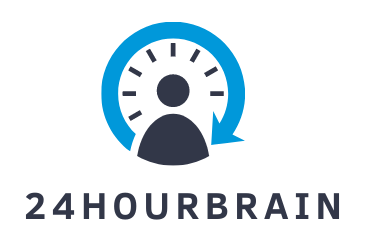Do you want to know how to stay focused and concentrate when reading?
Smartphones, excitement, and hustle and bustle, as well as environmental elements such as noise and other sorts of distractions, make it exceedingly difficult to enhance or keep attention when reading in today’s society.
Then, you have to read sentences over and over again to really understand what they mean.
Reading concentration is enhanced by proper posture, a distraction-free atmosphere, breathing methods, and other factors. The application of these approaches on a regular basis improves reading success indefinitely.
This method works whether you are reading for school or college, for professional development, or simply to absorb the contents of the daily newspaper in a concentrated manner.
1. Turn Off Your Phone!
Turn off instant messaging and email notifications, and set your smartphone to silent mode in general! Make sure you’re working in a calm, distraction-free setting.
This is a major concern for most of us since we rely on these services so much and they are a regular part of our lives, but they are also one of the largest diversions available these days.
Every time your email notification system or text message alert goes off, you get a mental jolt. The difficulty is that these messages can cause us to lose the momentum we gained while reading, and the attention we gained is lost.
Our brain requires some time to adjust to the information we are reading. When we are interrupted, our brain quickly shuts down, orients itself to the new work, and then must reorient itself when we resume reading.
This can result in a variety of reading inefficiencies. Most importantly, it can make it harder for us to focus on the things we are trying to remember.
2. Maintain Good Posture
Did you realize that sitting slumped over requires more energy than sitting upright? When you sit, push your hips as far back on the chair as possible. Adjust your chair so that your feet are flat on the floor and your knees are at or slightly below the level of your hips.
Set the back of your chair to a 100-degree angle. Make certain that your entire back is appropriately supported. Reading while slumped over on the couch is bad for your concentration (and your health)!
These methods not only increase your ability to concentrate when reading, but they also help you avoid long-term difficulties caused by improper posture. Allow fresh air into the area where you will read and provide something to drink.
With stale air and a dry throat, it’s impossible to concentrate for lengthy periods of time.

3. For One Minute, Clear Your Mind
You’ve probably heard about all the advantages of regular meditation. Ideally, we should read after a successful meditation practice because our thoughts are most likely to be clear of mental clutter at that time.
Because we don’t always have the luxury of a nice meditation before we read, we should take 1 to 2 minutes to relax and let go of thoughts before we begin reading.
Consider this: before reading, close your eyes and take 10-15 deep breaths, then exhale quietly and gently for twice as long.
Your thoughts remain focused on your breathing, and you deliberately observe how your breath moves. This promotes more clarity and displaces uncomfortable thoughts.
This will also allow you to better absorb the material you are reading. You will be able to concentrate more effectively while reading.
You can repeat this exercise if distracting thoughts arise while you are reading.
4. Read at Set Intervals
Your concentration will eventually wane. This is something you already know from other activities. This also applies to reading. That is why you should read at regular intervals. It is preferable to begin with intervals of 30 to 50 minutes.
At some point, our brain begins to become less efficient. Then take a 10-minute rest, possibly with the breathing exercise indicated in point 3.
After the break, you can devote another 30 to 50 minutes to reading. If you follow this cycle, you will not only get the most out of your reading, but you will also train your ability to concentrate and get into the habit of working at a certain speed and absorbing the information.
5. Read With a Specific Goal in Mind
You should set a definite and attainable aim. This could be a learning objective or the desire to completely comprehend an article in a newspaper. This will not only increase your concentration but also allow you to go through the content faster.
The more definite your aim is, the easier it will be to concentrate. Don’t strive to read as much as possible in the time you have available. This will simply result in overload and possibly incorrect absorption of specific facts and content.
In the worst-case scenario, you must read the content again, which increases the amount of time!

6. Read Slowly
We are often tempted to read too quickly. As a result, our reading speed may outpace our understanding abilities. The disadvantage is that we don’t see it straight away, which forces us to re-read lines and chapters.
You know how you go back and re-read sentences to make sense of the ones you just read? Make a conscious effort to read slowly; you will gain from it. With practice and experience, your reading pace will adapt to your comprehension abilities.
7. Make Certain That You Have Adequate Lighting
Even if you believe there is enough light, you may be mistaken. With insufficient light, you may be able to see and interpret the words and text, but your eyes (e.g., your eye muscles) will have to work harder, resulting in loss of concentration and premature weariness. Give off strong, glare-free light. The rule is that it is preferable to be overly light than too dark.
If the illumination cannot be altered, an e-book reader with backlighting may be worth considering. You can also change the font and size. In this manner, you may modify the text to the local surroundings regardless of the lighting scenario!
8. The Proper Relaxed Head Posture
The head posture while reading is just as crucial as the ideal seated posture. The neck muscles, in particular, play a larger role. You can stretch your neck muscles specifically before reading.
Here’s how to go about it: Sit up straight, with your back straight and your shoulders aligned. Place your head as far back as possible in the back of your neck. Count to 20 slowly and lean your head forward.
The body and shoulders are still in the same position as they were at the start. Pull the head toward the chest with the chin until it pushes on the neck. Count to 20 once more and slowly return the head to the horizontal position.
Turn the head as far to the left as possible (count to 20), then to the right and count to 20.
This practice complements the breathing technique described in tip 3. While reading, keep your head slightly angled. If required, repeat the task during a reading break.

9. When Is the Best Time of Day to Read?
The appropriate reading assignment for the right moment! While an interesting novel can be read in the evening, technical literature or professionally relevant documents should not be read when you are already exhausted from working at the end of the day!
Then no more hints will assist. Fatigue alerts the body that its ability to concentrate is deteriorating. It makes no sense to devote time to reading difficult materials and literature. Most people prefer the morning and early afternoon.
10. Make Reading a Habit
Reading, like so many other skills, takes practice. Repetition is required for practice. This applies to anything you want to be able to do, whether it’s playing a musical instrument, fixing cars, or getting in shape.
Read on a regular basis, preferably at specified times. Here’s the rule: small actions taken frequently are more beneficial than large ones taken only once a week! In layman’s terms, reading for 30 minutes four to five times a week is preferable to reading for two to three hours once a week!
As basic as these suggestions may appear, they can have a significant impact on your capacity to concentrate and sustain concentration when reading.
If you pay attention to the points, not only will your reading improve, but you may also acquire better concentration in other aspects of your life. Practice, practice, practice! Use these suggestions on a regular basis!


